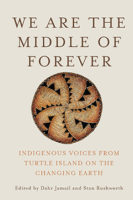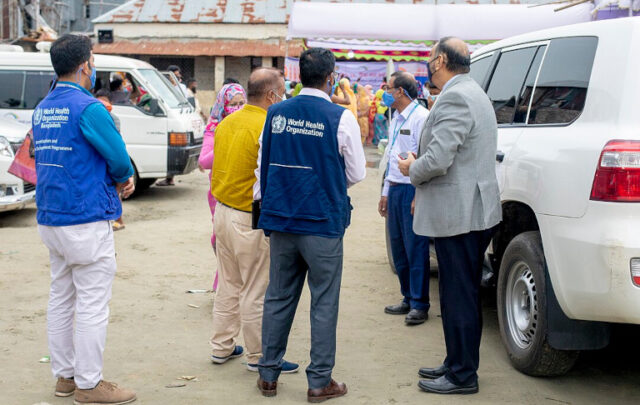 Ed note: Copyright © 2022 by Dahr Jamail and Stan Rushworth. This excerpt originally appeared in We Are the Middle of Forever: Indigenous Voices from Turtle Island on the Changing Earth published by The New Press. Reprinted here with permission.
Ed note: Copyright © 2022 by Dahr Jamail and Stan Rushworth. This excerpt originally appeared in We Are the Middle of Forever: Indigenous Voices from Turtle Island on the Changing Earth published by The New Press. Reprinted here with permission.
The following excerpt is from Chapter 6, Kinship, which was composed by Stan Rushworth from the response of Dr. Kyle Powys Whyte to the question of “‘How did we get to this point?”
With issues like climate change, and with the public health crisis, there are problems and pending crises for the future, but seemingly both the problems and the solutions are ones that people can’t seem to address without harming each other, without committing violence.
Climate change is an example of this. We see all the different climate change solutions to create renewable energy, but the literature is growing that even these solutions are ones that are bad for Indigenous people. They’re bad for people of color. And it makes one think whether a future with some of these solutions is actually going to be any better for Indigenous people and other groups. And so we’re in a time where I’m pretty profoundly skeptical when people are talking in the solution space, about whether they’re actually valuing groups of people who are disempowered today, and who are vulnerable to being harmed even by the solutions to some of the leading problems.
In terms of ‘How did we get to this point?,’ when I look at some of the problems that we see in climate change and public health, there are some things that really stick out to me. One is that people are failing to treat each other with a commitment to reciprocity. They’re failing to value each other’s consent. They seemingly don’t take seriously the importance of trust. There’s a sense in which both transparency, when it’s appropriate, but also privacy, when it’s appropriate, are not considered serious values. Obviously Indigenous people are constantly facing issues of privacy regarding the use and abuse of Indigenous knowledge within public and corporate and other spheres in cases where it’s not supposed to be, and doesn’t belong.
If you look at reciprocity, trust, consent, transparency, privacy, or confidentiality, these are all what I call the qualities of relationships we have with each other. And they’re a key aspect to what I would call a part of kinship. Kinship is a certain type of relationship that we all have with each other. No matter what society you live in, there’s going to be some degree of kinship. It just might look different or be exercised differently, or it could even be lacking, or particularly strong in some societies as opposed to others. But kinship refers to relationships of mutual responsibility, where we care for each other, and we create bonds with each other that make it so that, regardless of what the law says, and regardless of how severe a problem is, or regardless of what our rights are, we have an abiding sense that we need to care for others.
We need to be responsible for each other, and that’s not just confined to the human to human context, but depending on the culture, to all living beings and nonliving entities and systems. So responsibility is a really important way of understanding kinship. Responsibility is a type of relationship. As we know, because we have a responsibility in relation to somebody else, that’s a shared responsibility, but it’s only going to work if each of us has a profound respect for reciprocity, for consent, for trust, for transparency and confidentiality. You can only really have a responsibility that’s working and functioning if you have these qualities. A lot of Indigenous scholars and knowledge keepers, or knowledge gifters, talk about reciprocity or about consent or trust.
What I would argue is that the position we’re in today is one in which there is a profound lack of kinship, and the decline of kinship is traceable to the impacts of a very complex web of systems having to do with colonialism and capitalism, industrialization, ableism, and patriarchy, and over time, these different systems have had different expressions.
Locally and on a global context, they have disrespected, erased, and continue to ignore the importance of kinship. One of the things I reflect on is just the harms and atrocities of colonialism. For example, oftentimes folks will point to the idea that Indigenous people historically also did some things that were pretty bad. I think about historical cases of Indigenous people. What I notice is that even though at any point in time, any society will have issues and problems, with Indigenous societies, Indigenous traditions of memory making still acknowledge kinship as a way to interpret the causes of and lessons from cases of badness in the past. If I had to bet who would be a more peaceful society, I would argue that a society that would not forsake and ignore kinship would have a better chance to support people’s increasing freedom and safety and well-being than a society that just sort of throws kinship into the dustbin and doesn’t really care for it.





